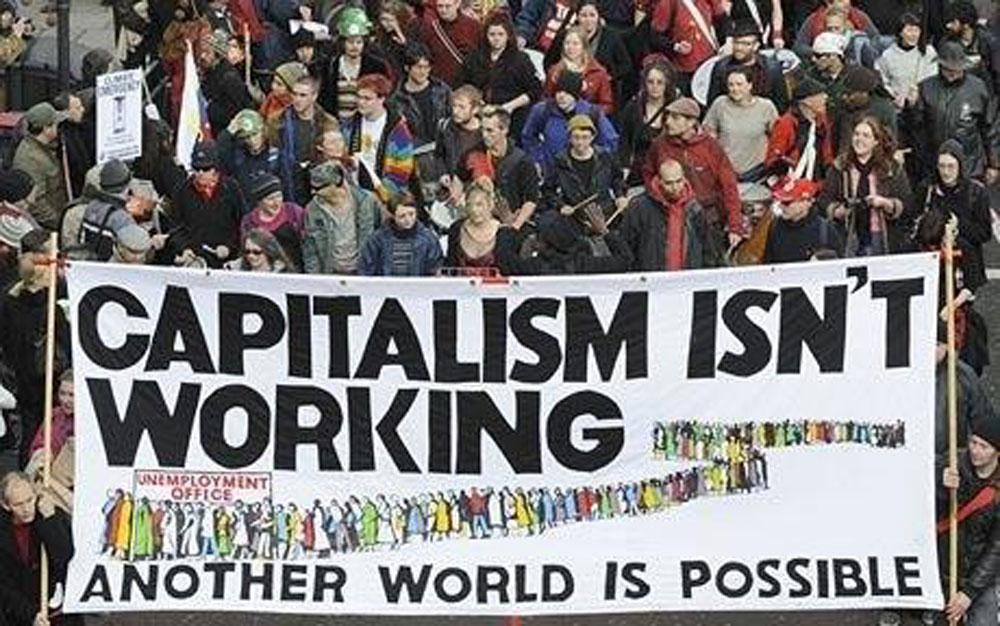Africa-Press – Mauritius. Whereas the world appears to be currently on the brink of another spurt of economic growth, new threats have emerged in certain places.
Globalisation has not been without its victims despite its spread-out prosperity in diverse places across the world
The good news is that a number of globally significant countries are currently showing signs of economic regeneration. America is forecast to grow by 2.3% in 2017, the Euro area by 2.6%, China by 6.8%, India by 6.3% and Japan by 2.1%.
Within the Euro area, even Greece is chalked out to register a positive growth rate of 1.3%. It is expected that 2018 will see a continuation of across-the-board economic growth, something that is being mirrored in stock market indices at record highs.
All this simultaneous pickup of diverse countries, which usually spearhead global economic growth, looks like signs of green shoots for an improved global economic situation.
The world may be finally on its way to shake out the sloth which has visited upon it since what is called ‘The Great Recession’ following the debacle of the Western financial sector starting in 2007-08.
It may be recalled that certain globally important financial institutions powered themselves into hyper-growth in the period before 2007, helped by low interest rates and employing political lobbying to have laws and financial regulations relaxed to support them in their over-drive.
Their “irrational exuberance” led them to over-lend to individuals and corporations beyond the latter’s capacity to repay. The consequence was widescale crashing property prices and ‘The Great Recession’. Many countries in Europe were on the brink of economic collapse, from which they were saved through international cooperation.
Enter, a less-sharing world
Sustained world economic growth during the past two decades swept across almost the entire world since economic liberalisation and globalisation were ushered in as from the 1980s.
In the process, China diversified its economy and attracted investments to a point where lately it has become world economy No 2, just after the US, relegating Japan to third place.
Sub-Saharan countries doubled their economic growth. Benefiting from both preferential trade arrangements and globalisation, the economy of Mauritius diversified and recorded significant high rates of growth after the mid-1980s.
Whereas the world appears to be currently on the brink of another spurt of economic growth, after limping its way during preceding years in the wake of The Great Recession, new threats have emerged in certain places.
Globalisation has not been without its victims despite its spread-out prosperity in diverse places across the world. In past years, the end of the global commodity boom has halved the growth rate of sub-Saharan Africa.
Free flows of workers across Europe has challenged the model on which an integrated Europe has been built. This led to the protest vote in favour of Brexit in the UK in 2016.
The relative prosperity of Europe relative to the neighbouring factious and war-torn Middle East has drawn large numbers of migrants into Europe. This situation has led to a sharper right-left divide in Europe than before.
Germany, which is the most powerful engine of European economic growth, is consequently finding its political leadership in limbo for the past couple of months. At a time the Euro area is in need of an assertive leadership to stitch back its threatened integrity!
On the other side of the Atlantic, the new leadership in America appears to be so concerned about domestic protests against the consequences of globalisation that it is bent on a standalone economic model, reneging if necessary on the global leadership role it has taken on in the post-war period.
It is chasing trade treaties negotiated with friends and allies, believing them to be the reason for massive loss of jobs in the US Rust Belt areas. There’s emerging another world order, it seems, where everybody fends for himself, no matter the consequences on the rest of the world.
Shifting the blame on everybody else for whatever unpleasant befalls on you is pure egoism of the sort which brought in two world wars in the last century.
Carried forward, it has the potential to deliver the “beggar-thy-neighbour” policy which characterised the dark ages of conquest and widespread destruction. It carries a big risk for a small economy like that of Mauritius.
A solution
It was obviously necessary to manage globalisation rather than leave it to run its wild course unchecked. When sweeping structural changes occur, disequilibria are created which, if foreseen and well managed, can prove beneficial to all inclusively.
For example, the first Industrial Revolution disrupted the then labour market for at least a decade until a balance was achieved once again by skilling up the workforce and finding new markets.
We should expect the same kind of imbalance to emerge now with ongoing changes in technology and things like artificial intelligence coming to workplaces.
A lasting solution will also not be found in everyone going his separate way from the rest of the world. Such an approach will only benefit anarchists looking to become popular in their narrow home constituencies in a perpetually conflicting global situation.
Experience has shown that when the world interacts freely, it is more likely to create prosperity for all than going it alone, thereby shrinking the size of the global economic cake. For the moment, passions run high in the most affected places and appear to be overtaking reason.
Truly capable leaders should be able to rein in the passions and spin mutually benefiting alliances the world over, including in their immediate constituencies, maybe trimming up the rough edges that have developed out of sheer neglect and selfishness over several decades now.
The alternative is to create several hostile centres of global power which will wreak further havoc and lesser across-the-board prosperity. There is little Mauritius can do to bring to reason the emerging global warring factions.
It can however refrain from taking sides or import in its midst the fissiparous forces that have come to occupy the public forum in so many places. It can also retain the friendship of those who’ve been by our side, especially when it was tough-going during the post-colonial period without appropriate economic moorings.
We don’t need to spend the limited fuel we have to burn all those disruptive egos seizing upon peoples right and left, blaming it on each other. We should wait for passions to die out and let the current uptick in global growth cool down heated tempers eventually.
For More News And Analysis About Mauritius Follow Africa-Press







